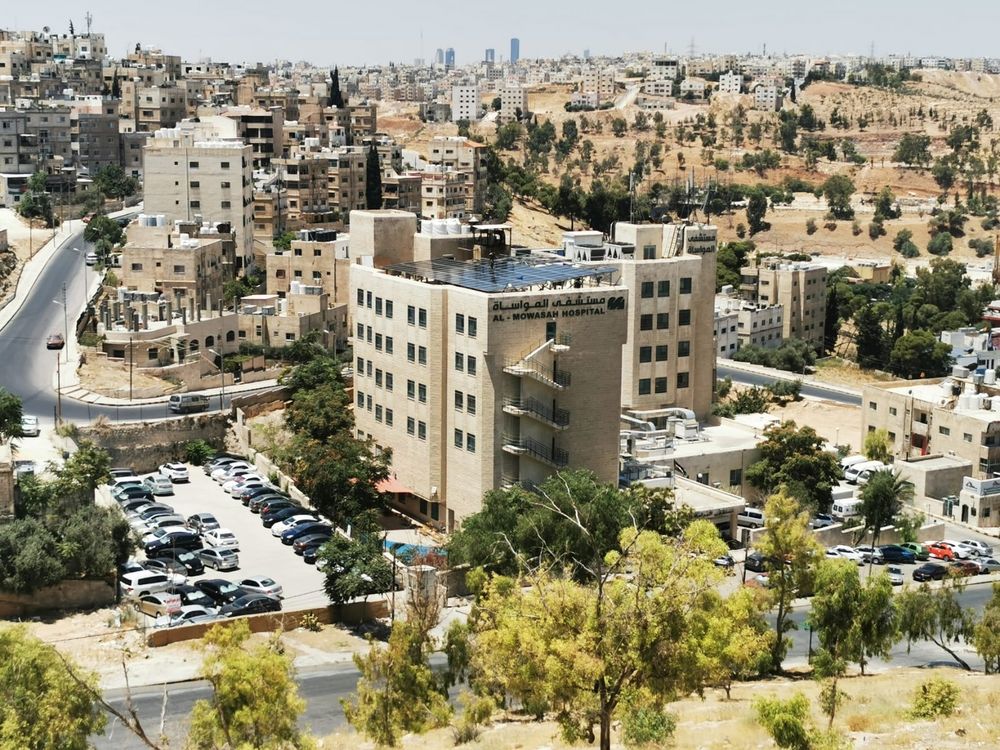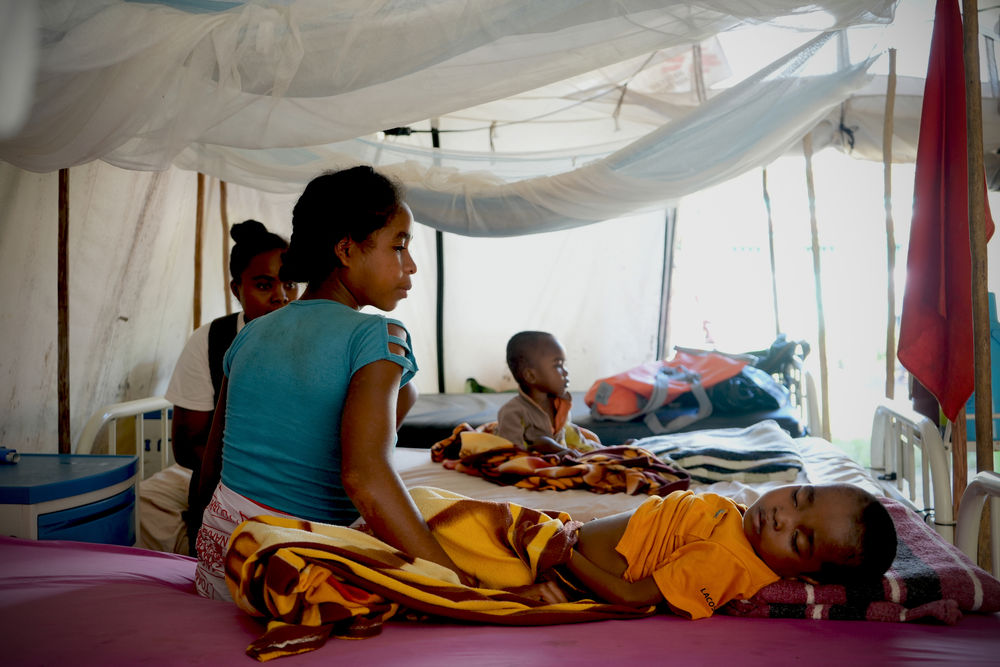The health impacts of climate change are already hitting vulnerable communities hard. One MSF hospital is determined to make a change…
Rodolphe Clair frequently checks the new app on his phone. He downloaded it after the solar panels were installed on the roof of Al Mowasah Hospital. At the time of this interview, he had been MSF’s logistics director since August 2022.
"Here, we can see the energy produced and the carbon saved in 24 hours,” he explains, gesturing to the screen. “It's interesting, it even tells us that the 626 kilos of CO2 saved represents around 50 trees planted.”
The hospital
MSF has run Al Mowasah since 2006, when it was set up to provide reconstructive surgical care to people with life-changing injuries from the war in neighbouring Iraq. This was a new way of working for MSF, and the project was a success, that soon expanded its criteria to provide care for people injured in conflicts across the Middle East region.
Now the hospital performs almost a thousand surgical interventions a year, but its commitment to innovation continues.
Energy efficiency
"For the moment, the solar panels cover only 8% of the hospital’s electricity needs, but we have a second plan to cover the car park. This should enable us to exceed 30%,” says Clair.
As a large, modern hospital in a desert country, the Jordan project is one of MSF’s biggest emitters of CO2. Its energy consumption accounts for almost a third of its carbon footprint, so the team knew this was an area they wanted to target.
The team chose battery-less panels for the roof; meaning less pollution and more durability, with a capacity of 60 kw. But they also recognise that producing green energy is only part of the solution: cutting energy consumption and greenhouse gas emissions is also key.
So the logistics team have been busy: converting the car fleet to hybrids; installing a more energy-efficient air conditioning system and boiler; and considering potential plans for insulation work including double glazing, temperature control, and heat-reflective paint on the roof.
“With all these steps … we should be able to reduce our fuel oil consumption and our electricity consumption significantly” Clair says.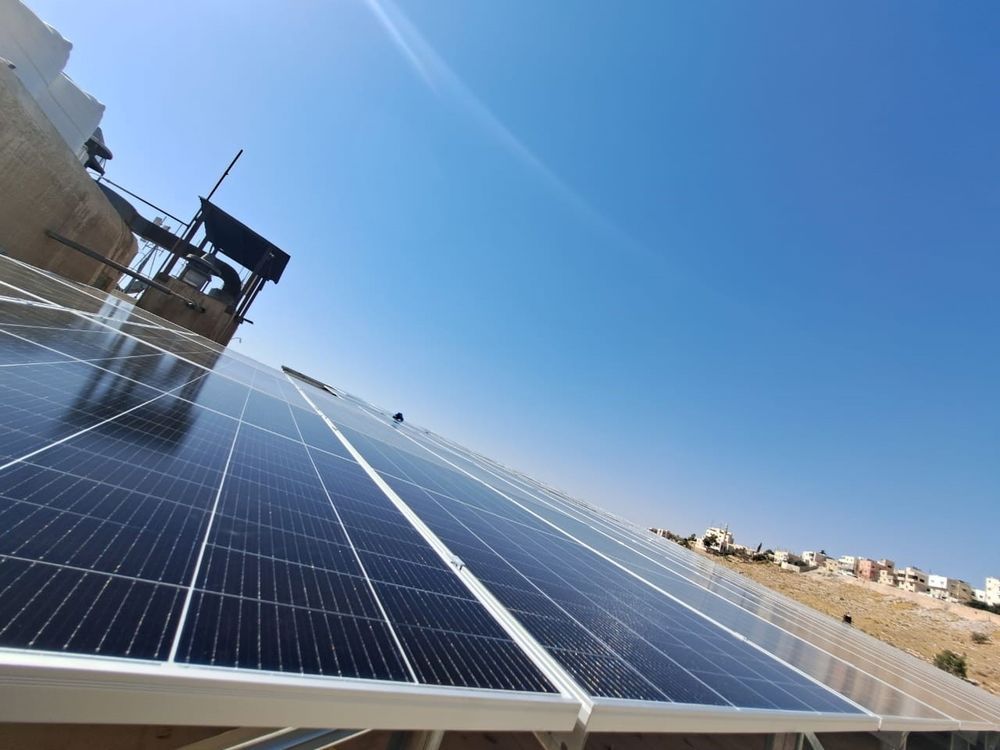 Solar panels on the roof of the Al Mowasah hospital. © Rodolphe Clair/MSF
Solar panels on the roof of the Al Mowasah hospital. © Rodolphe Clair/MSF
Where does it go?
As well as thinking about the big-picture impacts of CO2, the team has also been thinking locally, and considering other types of pollution generated by MSF’s activities.
“I used to watch the lorries collect our rubbish, but I was bothered by the idea of not knowing what they were doing with it,” Clair recalls. “One day, I followed them and realised that the waste was just going to a rubbish dump.”
The dump was an official site, but as a result of this discovery, the team decided to make some changes, in line with the strategic direction.
Tackling waste
"Water fountains were installed and patients were given reusable water bottles so that they could fill from the fountains and keep cool,” says nurse Yousef Abed Al-Aziz, who is also the Associative focal point for OCP in Amman and part of the Go Green Amman team, which includes staff from departments across the hospital. “And non-medical staff have been equipped with hygienic gloves that are more durable than surgical gloves.”
It’s through measures like these that the amount of plastic waste produced by the hospital has been reduced by three tons in just one year.
But it’s impossible to eliminate waste altogether, and for an infection prevention and control specialist like Abed Al-Aziz, ensuring safe, hygienic methods is paramount. "The implementation of waste segregation policies is not very strict in our country," he explains. “If some organisations manage to introduce sorting, it's because most of their waste is plastic or paper. But it becomes much more demanding in a medical context with syringes, medicine, heavy metals and other anatomical waste.”
However, the team was determined, and Clair managed to find a waste disposal company which was up to the task.
Now, rather than just dumping it, the reduced quantity of waste is sorted into different categories, and 54% of non-medical waste is now recycled, compared to 7% of them when the team started to work on this. The new company also has a residual waste processing area supplying a biogas power plant.
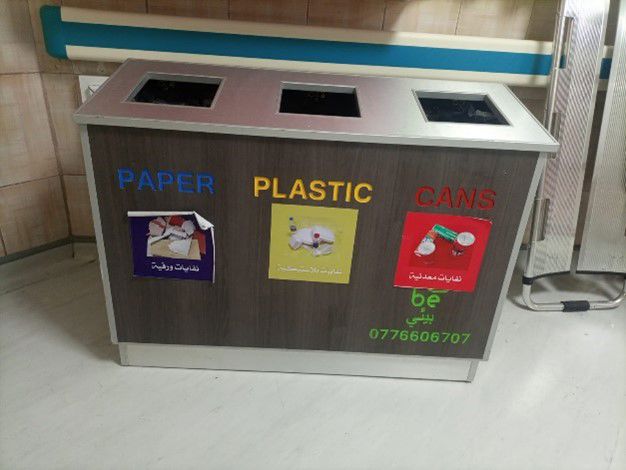 Recycling bins set up in the Al Mowasah hospital. © Yousef Abed Al-Aziz / MSF
Recycling bins set up in the Al Mowasah hospital. © Yousef Abed Al-Aziz / MSF
Adapting together
New ways of working can be challenging for anyone, so the Go Green team have been working with staff and patients to ensure that everyone feels included. Staff in particular are offered presentations, trainings, and even site visits to the waste plant.
“I wouldn't say that it was complicated to change our practices. But, like all new things, it took us a while to adapt," said Al-Aziz. “After a month, everyone was satisfied.”
Green investment pays for itself, but we also need to invest!
The changes at the hospital have required investment, not only in terms of staff time, but also financially. But alongside the environmental advantages, many of the changes are also sources of savings at a time when MSF teams around the world are facing increased costs.
"We've always talked about rationalising costs, and that's our responsibility as logisticians,” says Clair. “The solar panels will save us €20,000, or more than 8% of our annual electricity bill. They'll pay for themselves in a year and a half!” he enthuses.
“We now have hybrid minibuses that consume five to six litres per 100 km/h, which is 25% less than city cars, and 50% less than diesel 4x4s,” Clair continues. “By proving that we can make savings, it is that much easier to release the small proportion of MSF’s annual budget that has been assigned for reducing environmental footprint.”
Acknowledging the costs and bearing the potential savings in mind, the next phase of the project in Amman will be about learning and planning for the future. With Clair now on a new assignment within MSF, Jean-Pierre Pujo has stepped into the role. He explained the next steps: “We will be monitoring the impact of the measures taken over the last year and a half, to adjust when necessary, calculate the return on investment and defend the Go Green budget, even when we have to tighten our belts.”
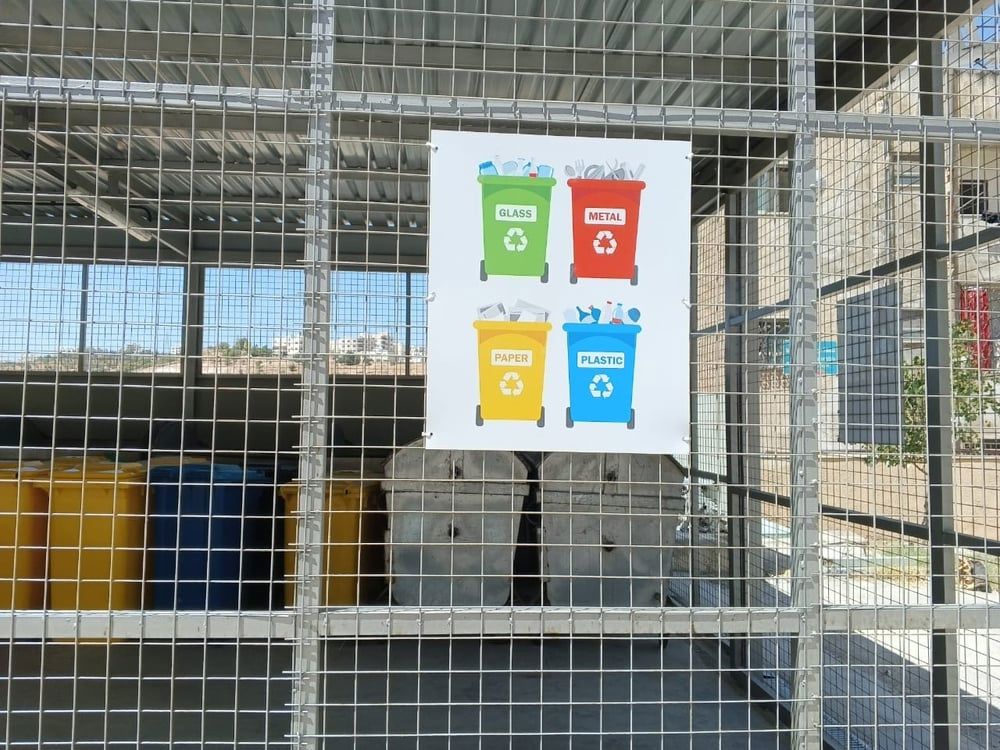 Go green measures at the hospital. © MSF
Go green measures at the hospital. © MSF
A green role model
Around the world, MSF teams are seeing first-hand the devastation caused by extreme weather events such as flooding and drought, and are working to provide medical care to people who have been hit by these crises. The science points clearly to the fact that in many places, these events will become more frequent and more intense as the planet heats.
MSF has pledged to reduce its global CO2 emissions by at least 50 percent compared to 2019 levels by 2030. Some of the changes needed to do this are happening at a movement-wide level, for example, as we work to make our global supply chains more sustainable. But others, as the Go Green project in Amman show, require local knowledge and an approach that’s tailored to the setting.
“We have been in touch with local authorities and our hospital seems to be a role model to apply further in Jordan” says Clair. “It has become a project for the whole hospital. The staff and even the patients are proud of it.”
Jean-Piere Pujo continues: "The plans for the next round of solar panels are already underway, and a Go Green committee will be set up next year with all departments. We don’t want this to be a novelty, we want staff across the hospital to feel like they have ownership of this project now and in the future.”
Al-Aziz is hopeful: “I think it's very positive that an NGO like MSF is not just interested in treating people, but also in its environment.”
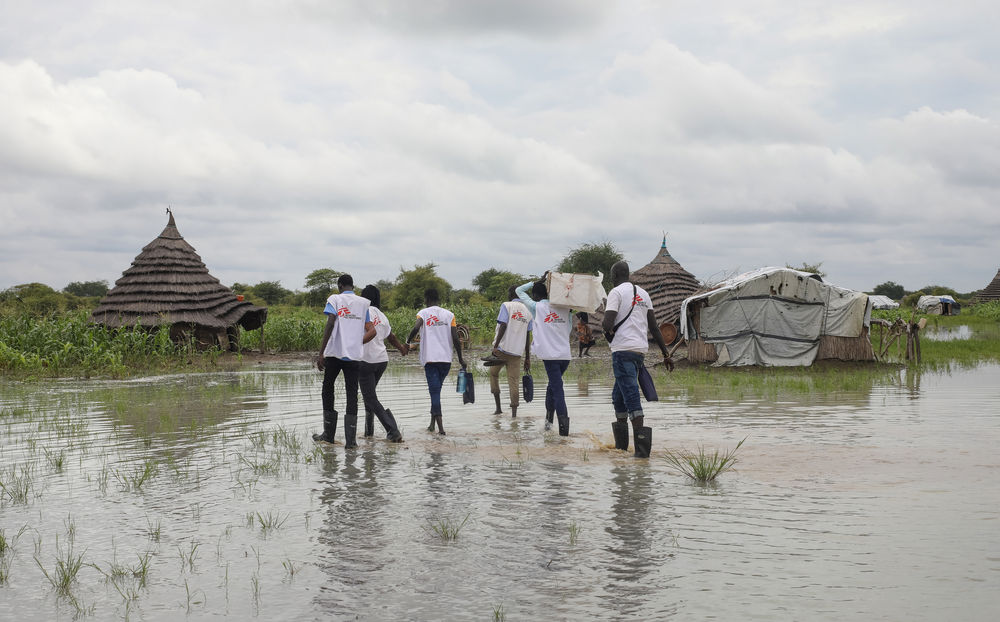 © MSF/Isaac Buay
© MSF/Isaac Buay


